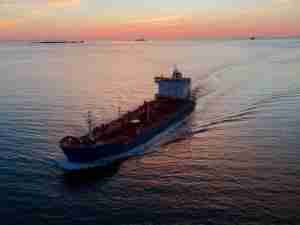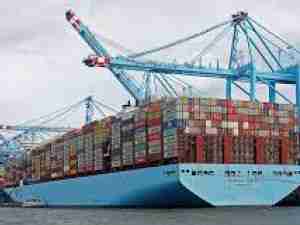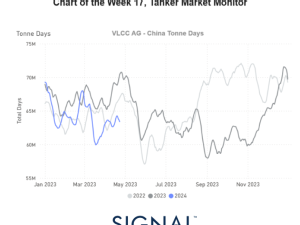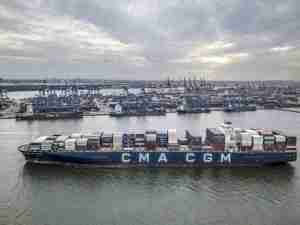The catastrophic shipping accident that’s choked off Baltimore harbor is leaving few options for some US coal exporters, with Consol Energy Inc. facing the biggest threat to its operations.
“Consol has the biggest exposure to this incident,” said Sandeep Sama, a senior analyst with Moody’s Ratings.
Baltimore’s port was shut down after a cargo ship slammed into the Francis Scott Key bridge early Tuesday morning, killing six people. As of Thursday, the wreckage of the bridge is still in the water, curtailing shipping to the Consol Marine Terminal about three miles (five kilometers) upstream.
The terminal is a key asset for Consol, which has focused on boosting exports in recent years amid shrinking domestic demand for the dirtiest fossil fuel. The company produced about 26 million tons of coal last year, and shipped almost 60% of that out through the terminal. It has few alternatives for reaching international markets. “It’s tough to say what their backup plan might be,” Sama said.
Consol has no definitive timeline for when normal operations may resume. The company is pursuing contingency plans that include using other East Coast export terminals and boosting domestic shipments, according to an emailed statement Thursday.
The shares tumbled 6.8% Tuesday after the accident, but clawed back some of that decline Wednesday. The stock was down 0.4% at 10:58 a.m. in New York Thursday.
The accident threatens to ripple across global energy supply chains as Baltimore is the second-largest US export hub for coal. The Consol facility is the larger of two coal export terminals in the harbor that are now blocked. Together they account for about 30 million tons of coal exports a year, about 30% of total US shipments.
Reports indicate it may be as long as six weeks before the wreckage can be cleared and the harbor reopened. That could erase about 2.2 million tons of exports from the Consol terminal, according to Andrew Blumenfeld, director of data analytics at McCloskey by Opis. For the moment, coal that’s still arriving will be piling up on the ground, but there’s a limit to how much the company can store on-site.
Rival miners that export from Baltimore may have more options. Arch Resources Inc. sends some coal from its Leer mines in West Virginia through the other terminal, Curtis Bay, which is owned by the rail company CSX Corp. Arch also co-owns an export terminal in Virginia and may be able to divert some tonnage there.
But Consol and other companies may struggle to find alternative export terminals that can take their coal, or the trucks, trains and barges they would need to deliver it, said Blumenfeld.
“Port capacity was already tight before this happened, especially on the East Coast,” said Blumenfeld. “There aren’t a lot of options right now.”










